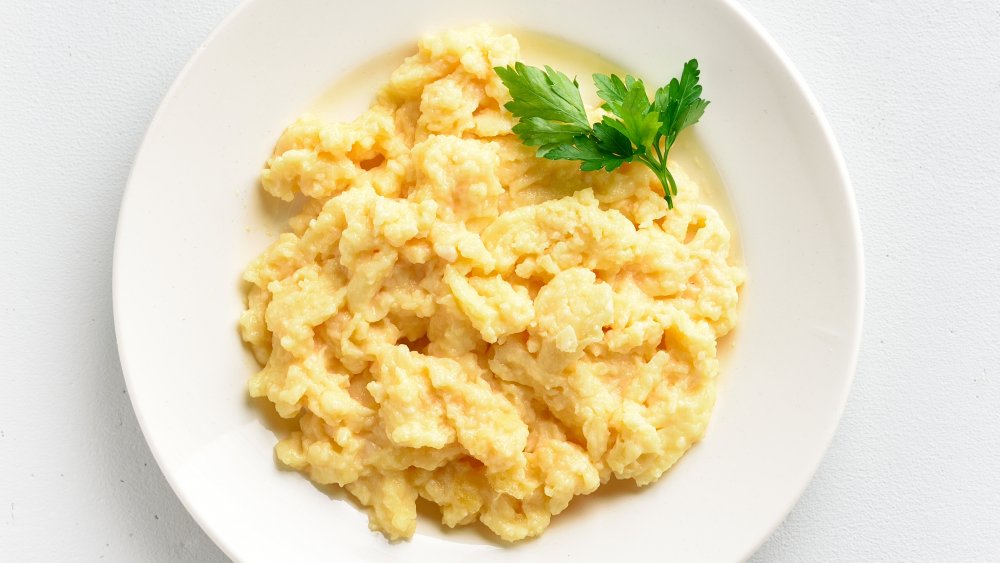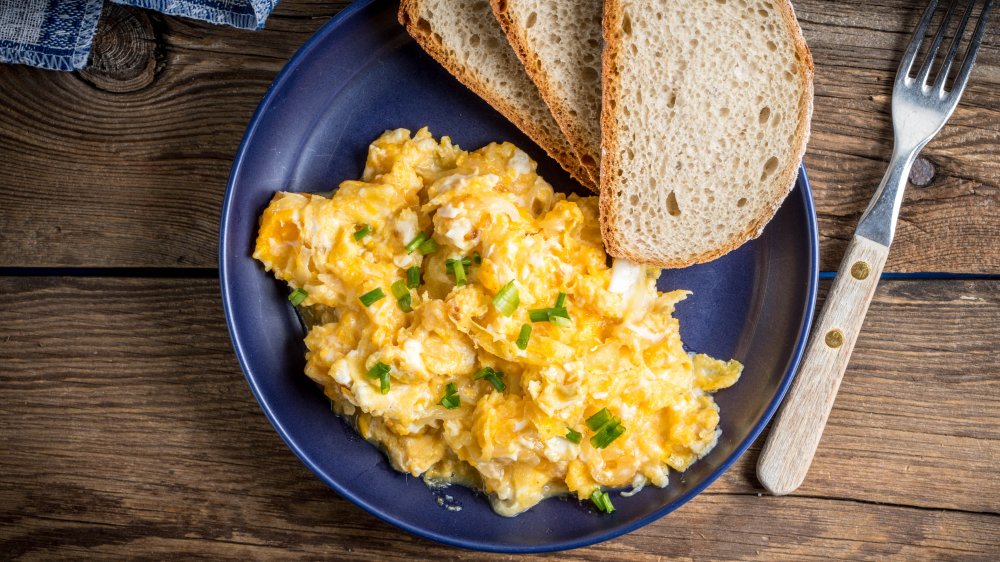Here's Why You Should Never Add Milk To Your Scrambled Eggs
Have you been making your scrambled eggs all wrong all of your life and not even known it? If you, like the rest of the world, add milk to your favorite breakfast food, the answer is, sadly, "yes." Don't shoot the messenger, but according to Southern Living, milk does not in fact translate into fluffier scrambled eggs. Adding this dairy product to your eggs has the opposite effect of enhancing the delish dish. Yup, milk actually dilutes the flavor of scrambled eggs. And, even worse, milk can make scrambled eggs rubbery and tasteless. Not good.
So are your eggs doomed? Nope. Instead of adding milk, it seems turning out the yummiest eggs is all about technique and using quality eggs. We've got all the tips you need on how to switch up your scrambled eggs game. This just may not only change your life for the better, but also the lives of anyone you invite over for brunch.
How to make savory scrambled eggs without milk
According to Bon Appétit, great scrambled eggs start when you choose the right cooking vessel, and that would be none other than a nonstick skillet. The eggs you use matter, too. "The better quality eggs, the better your scramble will be," BA test kitchen contributor Jessie Damuck said. Other than a pan that won't sideline your scrambling efforts (cast iron is too difficult for most home cooks to use successfully), and good, quality, fresh eggs, the only other ingredient one needs is butter, which is totally optional.
It is also recommended that you whisk up the eggs in another bowl before you add them to the pan. Both Bon Appétit and Southern Living implore scramblers to employ a silicone spatula and cook eggs low and slow to achieve the best possible breakfast dish.
Here's wishing home cooks everywhere the best of luck in preparing milk-free scrambled eggs that will make the morning shiny and bright. And yummy.

